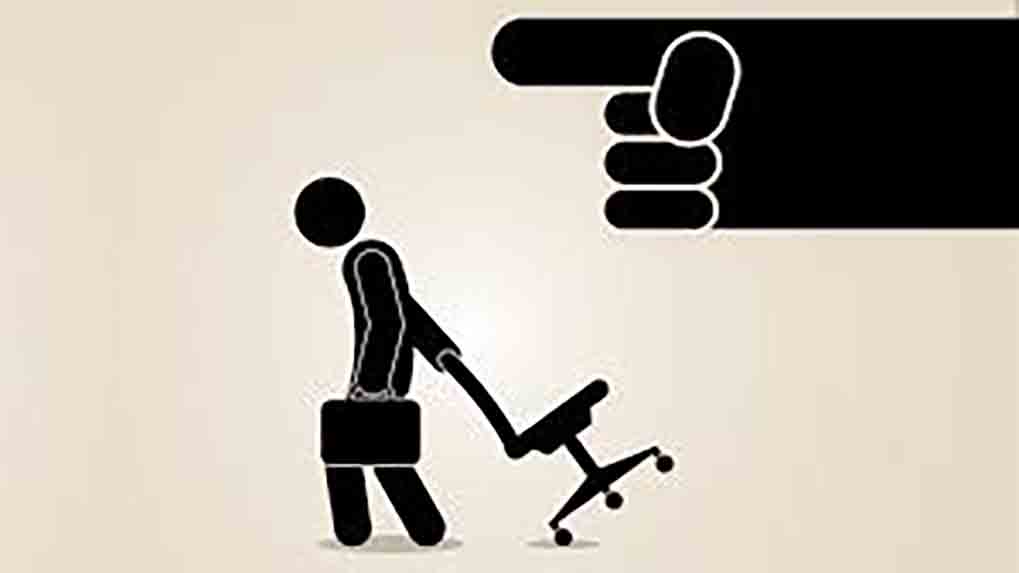Job loss is a very stressful event that causes a wide variety of reactions and changes in the people who experience it.
Some factors may have influenced the way you reacted to your layoff.
– The circumstances of the dismissal
Your situation and characteristics
– Prospects
Circumstances Of The Layoff
How you learned of your layoff may have had an impact on your initial reaction and your period of adjustment. For instance, if prepared, your response may be vastly different from your answer if you had received no warning. Other circumstances that may have affected your reaction include how the company treated you. Did they offer you support, including a severance package and outplacement services? Did they provide you with a period of transition, or move you off the premises immediately following the layoff notification? Let’s look at each of these scenarios a little more closely.
No Advance Warning
If you had received no indication of possible layoffs or were confident that your position was secure despite layoffs in other areas, your reaction may have been one of disbelief and shock.
Other possible reactions include anger, panic, and denial. These responses are normal. If you are experiencing any of these reactions, allow yourself to take some time to work through these emotions before making any critical decisions or taking any actions that may be the source of regret later. Your period of adjustment may be somewhat longer than It would be for someone who had time to prepare themselves for the lay-off.
Rumors Of Possible Layoffs
It is not uncommon these days for word to get out long before the action occurs about shutdowns, mergers, and downsizing. Rumours, based on facts or merely unfounded, may have put you on an emotional roller coaster ride long before you lost the job. Uncertainty, fear, and anger are just some of the changing emotions you may have experienced if you were in this position.
The rumours may have served as somewhat of a cushion and the opportunity to have prepared oneself mentally, emotionally and financially.
Rumours may have also provided you with the incentive to consider a make a career change or start looking for another job. On the other hand, you may be feeling very bitter if you disregarded the rumours and did not prepare for the layoff.
Company Informs Employees That Layoffs Will Occur
Many organizations have taken to informing their employees as much as a year in advance that X number of employees will lose employment. In some cases, employees have the opportunity to take a voluntary separation package before the forced layoffs. If this was true in your case, you might have reacted more favourably, having had the opportunity to take some control over an unpleasant situation.
If you had made a choice not to take the optional package, or if not given the option, perhaps the notice helped you prepare for the layoff in some way.
Manner In Which The Company Treated You
The way the company informed you of the lay-off and treatment received may also have an impact on your reaction to the news. Interviewees responded more favourably when they felt treated with dignity and respect.
In cases where the employers explicitly stated to the employee that the layoff was not due to personal or performance issues, the adjustment was more comfortable for the employee.
Support Services
The support services offered by employers could serve as somewhat of a buffer to the laid-off worker. These include severance packages, outplacement services, a continuation of benefits, etc. If your former employer offered minimal or no support services, you might have greater feelings of anxiety about your future, and be angry and bitter toward your previous employer.
Period Of Transition
Some employers offer employees the option to stay on the job for a predetermined period. Other employers provide no transition time, making the layoff effective immediately. Reaction to a period of transition varied amongst the interviewees.
Employees receiving news of the layoff tend to respond in one of three ways: as a victim, a survivor, or a navigator. A victim tends to feel powerless, even abused. A survivor brushes themself off and moves onto new ventures. A navigator takes control of the situation, using it as an opportunity to chart a new course. The role each person adopts is determined mainly by their characteristics and circumstances. You may wish to consider which part you are going to assume. Below, are two powerful predictors of reactions to job loss: Financial Status and Attachment to the Job.
Your Situation And Characteristics
Financial Status
The status of your finances plays a large part in the way you react to the layoff. If you have very few financial commitments and a handsome severance package, you will likely have fewer immediate concerns than the individual who has a heavy debt load and a modest (or non-existent) severance package. Another consideration here is whether you are the only (or primary) “breadwinner” in the family. It is not uncommon these days to find families where layoffs have occurred for both wage earners, in which case, the results can be devastating.
Attachment To The Job
If you lost your “dream job,” then the impact of the loss may be overwhelming. If you were genuinely committed to your work and had visions of advancement, then your reaction and adjustment period may be dramatically different than it would be for someone less committed to their work.
Age
Layoffs are not easy for any particular age group. If you are a young person, new to the workforce, you may be devastated, having lost a job you trained for years. You may lack the experience necessary to be competitive in a tight job market.
If you are 45 years old or older, you may be similarly affected, thinking that you can’t compete with the younger worker who has more recent education/training and may accept a lower wage. You may also feel out of touch with the current labour market.
Because the job market has become increasingly competitive, employers can select their candidates from pools of highly educated, skilled employees.
Therefore, if your level of education does not make you a competitive candidate, the impact of the layoff will be different for you than it is for someone who has the educational background to support them in their attempts to return to the workforce. It’s crucial here not to jump to conclusions about required education in a particular field, but to thoroughly research this aspect. For instance, you may assume that they prefer a degree over a certificate or diploma, but this is not still the case. In some fields, employers are more eager to hire an individual with more practical training or schooling obtained through a technical school or college, rather than the more academic background offered through many university programs.
Skill Transferability
If your skills are highly specialized in an industry experiencing huge cutbacks, you may find yourself faced with some hard decisions:
- relocating to an area where your skills are still in demand
- offering your services as a consultant
- reviewing your skills that are transferable to other areas.
Support Systems
The level of support you have from family, friends and former colleagues will most certainly play a role in how well you adjust to the lay-off. The tremendous benefits provided by a stable support system discussed in other articles on this site.
Previous Job Losses
The news of a layoff may affect you differently the second or third time you experience it. That is not to say it will make it easier, but some report that is knowing what to expect, and having survived it before, may ease the initial blow.
If you find yourself experiencing repeated layoffs, it may be time to consider whether something you are doing is a contributing factor. Ask your former employers for feedback on your past performance and suggestions on how you can make yourself more competitive in the field. Chances are your layoffs were not linked to performance issues. It may just be time for you to consider a new occupation, one in which there is more demand for workers.
Personal Characteristics
Some variables will also have an impact on your reaction to job loss. These include your attitude, your physical, mental and emotional well-being, your ability to problem-solve, and your coping mechanisms. As you work through this manual, it may be useful for you to examine your characteristics, and consider how they are helping or hindering your progress about the layoff.
One final factor that may contribute to the way you respond to the layoff is your perception of your prospects. If you, like so many others, believe that there are no jobs out there, your reaction may be one of devastation. Therefore, it is essential to distinguish between what’s real versus what’s perceived. It may be difficult to be optimistic at a time when layoffs are abounding, and the media has little else to focus on, but take heart; there are opportunities out there. There’s no denying that the prospects in some occupational fields and some demographic areas are grim, but the key here is to search for and find the opportunities that do exist.
© Wordscapes® (David Turner). All Rights Reserved




